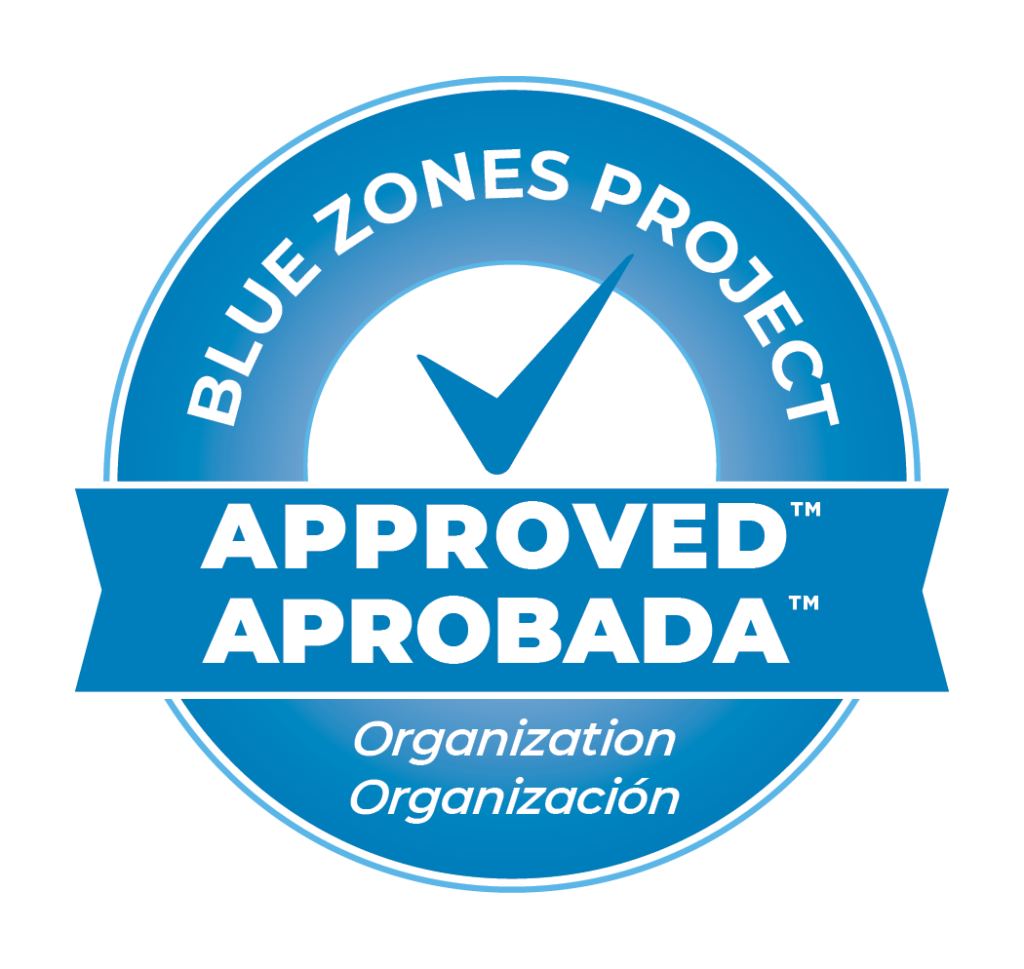In 1985, about 6 months after I became Executive Director, we formed an agency “Philosophy Committee.” It was a difficult time, as the founding Executive Director had left, the agency was having serious financial issues, and several programs had closed and there had been layoffs of staff. The committee was formed to “revive and refocus the agency.” While cleaning my office recently, I found the results of the staff survey that was done by the Committee. The first question was “What is the purpose of Interim?” Answers were, “to help our clients move into the real world, to help persons with mental health problems become independent members of the community, to provide humane, least restrictive treatment, to teach social, vocational and self-care skills, to prevent hospitalizations.” It was noted that at that point, all Interim staff were paraprofessionals, and clients were used to dealing with psychiatrists. Someone pointed out that we had to show clients that staff at Interim were not going to take care of all of their needs, and we didn’t have all the answers. Clients had to take an active part and be responsible for their own recovery.
Someone noted, “staff needed to recognize that clients may know more about themselves than we do, and that motivation for change had to come from the clients.” We needed to promote “interdependence, not necessarily independence.” They recognized that clients needed friends and family as a support system.
Today, 37 years later, I’m amazed how Interim’s philosophy has basically stayed the same. The names have changed, from ‘social rehab’ model to the ‘recovery’ model.
What is different today from 37 years ago, is that we were complete outliers from the County, State, and federal system systems of care, most of which were based on pure medical models. The focus was on “maintenance and med compliance” rather than recovery. Interim’s workforce did not come with any professional training. In fact, there were two staff who had “lived experience” as inpatient psychiatric patients, one diagnosed with schizophrenia. Hiring of staff who had “lived experience” was unheard of at that time.
Today, the general philosophy of mental health treatment, both locally, statewide, and nationally has moved to principles on which Interim was founded in 1975. The National Substance Abuse and Mental Health Services Administration now defines recovery as “A process of change through which individuals improve their health and wellness, live a self-directed life, and strive to reach their full potential.”
Interim was and continues to be a leader in promoting mental health wellness and recovery. We are known statewide for the quality and quantity of our supportive housing and for inclusion of people with lived experience as an integral part of our workforce. We must continue to strive to be in the forefront of a changing system. Looking towards the future, we have some new opportunities and challenges.
First, the California mental health system is changing to a new model. California Advancing and Innovating Medi-Cal — known as CalAIM — is a far-reaching, multiyear plan to transform California’s Medi-Cal program, and to make it integrate more seamlessly with other social services. Led by California’s Department of Health Care Services, the goal of CalAIM is to improve outcomes for the millions of Californians covered by Medi-Cal, especially those with the most complex needs.
Over the next few years, there will be more integration of Behavioral Health with the physical healthcare system. This means that in the future, the Counties may not operate the behavioral health systems in the way they do now. Payment systems may be very different. On the good side, Medi-Cal billing may not be as onerous as it is now. Also, Medi-Cal is starting to help pay to get and keep people in housing and help them access non- medical services that are important to overall health. On the challenging side, the services for people with serious mental illness may no longer be “carved out” and Interim may be dealing with different payors. Also, on the positive side, California has now approved peer certification and the state is moving towards a stronger emphasis on training and integrating persons with lived experience in the behavioral health workforce.
So, what are our plans for the next year?
We are focusing on wellness and recovery and integrating persons with lived experience in our workforce. After a couple of difficult pandemic years, we are growing again and adding new programs.
We are hiring more Wellness Navigators and adding services that will help the County integrate physical and mental health care. We are adding Wellness Navigators for more outreach for both MCHOME and for the County’s Transitional Age Youth Services at their clinics.
We are adding a Wellness Navigator to Keep it Real for outreach. We are again growing the SOS program to do more community education and outreach. In addition, we are re-opening the Academy. We have just signed a contract with San Benito County so that we can provide some crisis residential services for them, and we are developing a new project to expand our services to clients with commercial insurance.
Sun Rose Housing has been under construction since August and should be done in the fall. Sunrose will provide transitional and permanent housing for 17 homeless individuals in the newly built three story building in Salinas to be operated by MCHOME.
We know that we have a strong staff team and many managers who have risen though our staff ranks to assume new leadership positions in the agency. We are proud of the many staff who have excelled in the agency and many who are pursuing additional education and working towards licensure. We have a strong and engaged Board of Directors. We feel confident that we can find new leaders, both in our staff group and in the wider community to help Interim thrive and grow for many years.
In 1985, about 6 months after I became Executive Director, we formed an agency “Philosophy Committee.” It was a difficult time, as the founding Executive Director had left, the agency was having serious financial issues, and several programs had closed and there had been layoffs of staff. The committee was formed to “revive and refocus the agency.” While cleaning my office recently, I found the results of the staff survey that was done by the Committee. The first question was “What is the purpose of Interim?” Answers were, “to help our clients move into the real world, to help persons with mental health problems become independent members of the community, to provide humane, least restrictive treatment, to teach social, vocational and self-care skills, to prevent hospitalizations.” It was noted that at that point, all Interim staff were paraprofessionals, and clients were used to dealing with psychiatrists. Someone pointed out that we had to show clients that staff at Interim were not going to take care of all of their needs, and we didn’t have all the answers. Clients had to take an active part and be responsible for their own recovery.
Someone noted, “staff needed to recognize that clients may know more about themselves than we do, and that motivation for change had to come from the clients.” We needed to promote “interdependence, not necessarily independence.” They recognized that clients needed friends and family as a support system.
Today, 37 years later, I’m amazed how Interim’s philosophy has basically stayed the same. The names have changed, from ‘social rehab’ model to the ‘recovery’ model.
What is different today from 37 years ago, is that we were complete outliers from the County, State, and federal system systems of care, most of which were based on pure medical models. The focus was on “maintenance and med compliance” rather than recovery. Interim’s workforce did not come with any professional training. In fact, there were two staff who had “lived experience” as inpatient psychiatric patients, one diagnosed with schizophrenia. Hiring of staff who had “lived experience” was unheard of at that time.
Today, the general philosophy of mental health treatment, both locally, statewide, and nationally has moved to principles on which Interim was founded in 1975. The National Substance Abuse and Mental Health Services Administration now defines recovery as “A process of change through which individuals improve their health and wellness, live a self-directed life, and strive to reach their full potential.”
Interim was and continues to be a leader in promoting mental health wellness and recovery. We are known statewide for the quality and quantity of our supportive housing and for inclusion of people with lived experience as an integral part of our workforce. We must continue to strive to be in the forefront of a changing system. Looking towards the future, we have some new opportunities and challenges.
First, the California mental health system is changing to a new model. California Advancing and Innovating Medi-Cal — known as CalAIM — is a far-reaching, multiyear plan to transform California’s Medi-Cal program, and to make it integrate more seamlessly with other social services. Led by California’s Department of Health Care Services, the goal of CalAIM is to improve outcomes for the millions of Californians covered by Medi-Cal, especially those with the most complex needs.
Over the next few years, there will be more integration of Behavioral Health with the physical healthcare system. This means that in the future, the Counties may not operate the behavioral health systems in the way they do now. Payment systems may be very different. On the good side, Medi-Cal billing may not be as onerous as it is now. Also, Medi-Cal is starting to help pay to get and keep people in housing and help them access non- medical services that are important to overall health. On the challenging side, the services for people with serious mental illness may no longer be “carved out” and Interim may be dealing with different payors. Also, on the positive side, California has now approved peer certification and the state is moving towards a stronger emphasis on training and integrating persons with lived experience in the behavioral health workforce.
So, what are our plans for the next year?
We are focusing on wellness and recovery and integrating persons with lived experience in our workforce. After a couple of difficult pandemic years, we are growing again and adding new programs.
We are hiring more Wellness Navigators and adding services that will help the County integrate physical and mental health care. We are adding Wellness Navigators for more outreach for both MCHOME and for the County’s Transitional Age Youth Services at their clinics.
We are adding a Wellness Navigator to Keep it Real for outreach. We are again growing the Success Over Stigma program to do more community education and outreach. In addition, we are re-opening the Wellness and Recovery Academy. We have just signed a contract with San Benito County so that we can provide some crisis residential services for them, and we are developing a new project to expand our services to clients with commercial insurance.
Sun Rose Housing has been under construction since August and should be done in the fall. Sun Rose will provide transitional and permanent housing for 17 homeless individuals in the newly built three story building in Salinas to be operated by MCHOME.
We know that we have a strong staff team and many managers who have risen though our staff ranks to assume new leadership positions in the agency. We are proud of the many staff who have excelled in the agency and many who are pursuing additional education and working towards licensure. We have a strong and engaged Board of Directors. We feel confident that we can find new leaders, both in our staff group and in the wider community to help Interim thrive and grow for many years.




